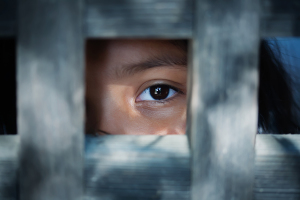U.N. Investigator: Torture Remains Widespread in China Despite Decline
U.N. Special Rapporteur Manfred Nowak confirmed that many of the torture methods alleged to have been practiced on ethnic minorities, political dissidents, human rights defenders, and members of house-church groups have been used in China.
Despite its decline, torture remains widespread in China, a special investigator for the U.N. Human Rights Commission said Friday.
After a two-week visit resulting from a request originally made nearly a decade ago, U.N. Special Rapporteur Manfred Nowak said he could not make a detailed determination as to the current scale of abuses, but confirmed that many of the torture methods alleged to have been practiced on ethnic minorities, political dissidents, human rights defenders, and members of house-church groups have been used in China.
The alleged methods, as reported by the U.N. News Center, include use of electric shock batons, cigarette burns, guard-instructed beatings by fellow prisoners, submersion in pits of water or sewage, exposure to extreme heat or cold, being forced to maintain uncomfortable positions, deprivation of sleep, food or water, and suspension from overhead fixtures by handcuffs.
"Very often an individual police officer is not instructed to torture but is under pressure to extract a confession," he told reporters after his trip.
Beginning Nov. 20 and ending on Dec. 2, Nowak’s trip to China included visits to Beijing, Lhasa in the Tibet Autonomous Region (TAR) and Urumqi in the Xinjiang Uighur Autonomous Region (XUAR). During his time there, the U.N. investigator noted that all meetings with detainees were carried out in privacy and in locations he designated, no request for a meeting or interviewing a particular individual was refused and prison staff was generally cooperative, the U.N. reported.
While Nowak expressed his “deep appreciation” to the Foreign Ministry for its great efforts in ensuring that the mission proceeded as smoothly as possible, the human rights expert said he felt “compelled to point out” that a number of alleged victims and family members were intimidated by security personnel, placed under police surveillance, instructed not to meet him, or were physically prevented from meeting with him.
"Victim’s families were actually prevented by various means, by putting them under house arrest, or physically prevented them, from coming to meet me," he told reporters.
Moreover, in his interviews with detainees, he observed “a palpable level of fear and self-censorship,” according to the U.N. News Center. A considerable number of detainees did not express a willingness to speak with him and several of those who did requested absolute confidentiality.
Nowak also noted that some Government authorities, particularly the Ministries of State Security and Public Security, attempted at various times throughout the visit to obstruct or restrict his attempts at fact-finding and that he and his team were frequently under surveillance.
“Under these conditions and taking into account the size and complexity of China as well as the limited duration of the mission, the Special Rapporteur acknowledges the limitations in drawing up a comprehensive set of findings and conclusions on the situation of torture and ill-treatment in China,” he said.
Nowak noted several government steps to tackle the problem both at the central and local levels – from the standardization of regulations to measures against forced confessions resulting in injuries or miscarriages of justice to pilot systems of audio and video recording in interrogation rooms.
But the investigator listed major obstacles such the failure to exclude statements made as a result of torture, the absence of an independent judiciary and the lack of an independent monitoring mechanism of all places of detention and a functional complaints mechanism.
In his report, Nowak urged China to further develop its criminal system to encourage fair trials and ensure that dissidents and other groups are not imprisoned under vaguely worded state security laws.




























